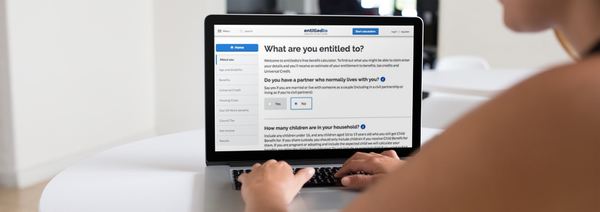What is Universal Credit?
September 26, 2013 –
Universal Credit will be gradually rolled out across the country so that it is fully in place by 2017. People who are currently receiving benefits will not be affected until April 2014 at the earliest. In the first year, April 2013 to March 2014, you must be newly unemployed and living in a selected area to claim Universal Credit.
In April 2013 Universal Credit started in Tameside, Greater Manchester. It has expanded to parts of Wigan, Warrington and Oldham. From October it will be rolled out to Hammersmith, in November to Inverness and Rugby and in February to Bath and Harrogate. In March it will be rolled out to Shotton and then it will gradually cover more parts of the country, eventually affecting all of the United Kingdom.
What is Universal Credit?
Universal Credit (UC) is a means-tested benefit for working age people that replaces a number of existing benefits and tax credits. It is designed to support people who have a low (or no) income with their basic living expenses and housing costs. Each claim is assessed based on a number of elements including allowances for living expenses, for children, childcare expenses, and housing costs (for rent or mortgage payments). Additional elements for carers and for people with disabilities or certain health conditions can also be added to the maximum amount of benefit payable. For more information see our guide to how Universal Credit is worked out.
What is Universal Credit replacing?
Over a number of years the following benefits and tax credits will be abolished as UC replaces them:
- Income Support
- Income-based Jobseeker’s Allowance
- Income-related Employment and Support Allowance
- Housing Benefit
- Child Tax Credit
- Working Tax Credit
Other benefits that are not means-tested will continue including some types of Jobseeker’s Allowance and Employment and Support Allowance. Disability benefits that are not means tested will not be affected by this change for example Disability Living Allowance or Personal Independence payments (PIP - See our guide to Personal Independence Payments for more information on changes to disability benefits). Council Tax Benefit was replaced with Council tax Support from April 2013 and is not part of UC. See our guide to Council Tax Support.
Who can get Universal Credit?
Universal Credit is payable to people out of work, including people looking for work and people unable to work due to illness, disability or childcare commitments and to people in work on low incomes.
Most people will claim Universal Credit online. For more information, see our guide to online claims.
Receipt of UC comes with a claimant commitment. This means that everyone who claims is placed into a group that determines what they have to do in order to continue receiving the benefit. For more information see our guide to the Claimant Commitment.
Payments of Universal Credit
For most people, Universal Credit will be paid every month into their bank account. The Government says this is to make benefit payments more like payments from a job. This is a significant change from many benefits which are paid weekly. For people whose Housing Benefit is currently paid to their landlord (such as many people who rent from a council or housing association), they will now receive the payments themselves and must arrange to pay their rent themselves. Although UC is made up of different elements for living expenses, for rent and childcare, it will be paid as one big payment every month. The customer will have to decide how much to put aside for each of their different expenses.
When will Universal Credit start?
Universal Credit is being introduced in stages. The timetable is as follows:
- From 29 April 2013 it will be introduced in Tameside
- From July 2013 it will be introduced in Wigan, Warrington and Oldham
- From October 2013 it will be introduced in Hammersmith
- From November 2013 it will be introduced in Rugby and Inverness
- From February 2014 it will be introduced in Harrogate and Bath
- From March 2014 it will be introduced in Shotton
- The Claimant Commitment will also roll out to all Jobcentres from October with all Jobcentres moving to the new universal commitment regime.
- From April 2014 it will affect new claims for tax credits
- From April 2014 it will begin to affect existing benefit claimants
- By 2017 every claim will have been moved onto UC
How will you be affected under Universal Credit?
We have a Universal Credit calculator that is fully integrated into our benefits calculator. This allows users to see how they will be affected under universal credit at the end of a calculation. To find out how Universal Credit will affect you use our benefits calculator at www.entitledto.co.uk.

